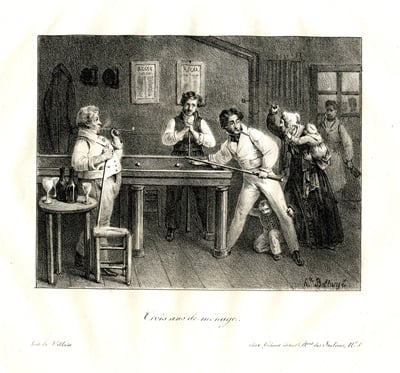The connection between war and wine economics is complex.
Israeli wine serves as a symbol of peace amidst conflict. By supporting Israeli wineries, promoting peaceful resolutions, and standing in solidarity with Israel’s winemakers we can play a part in fostering peace and resolution amidst conflict, one sip at a time.
The Sukkot Festival
Significance of Sukkot
Sukkot holds significant cultural and religious importance within Judaism, characterized by dancing, singing, and the ceremonial unveiling of Torah scrolls, often accompanied by a glass of wine symbolizing joy, prosperity, and gratitude. It demonstrates the community’s perseverance and solidarity in the face of challenges. The role of wine in bringing people together, bridging differences, and fostering connections highlights the poignant nexus of conflict, vineyards, and wine culture. However, in conflict-affected regions, Sukkot festivities pose unique challenges, serving as a litmus test for the resilience of Jewish culture amidst adversity.
No Wine. No Celebration
Challenges faced in celebrating Simchat Torah in a conflict zone
Celebrating Simchat Torah in a conflict zone comes with significant challenges. The constant risk of rocket attacks and the need for strict security measures cast a shadow over the festivities. Access to vital elements of the ritual, such as Israeli wine, can be disrupted by blockades and security issues, making it difficult for the community to engage fully in the traditions. Despite these hurdles, the determination to uphold cultural practices and find joy in adversity reflects the community’s resilience, often mirrored in the commitment seen in military service.
Wineries Targeted by Hamas
Israel’s wineries have burgeoned into a thriving sector, contributing over $50 million to the country’s economy. Since October 7, 2023, the industry has faced a unique challenge as many of its key personnel, including winemakers, viticulturists, staff, and even family members, have been called for military service, leaving grapes on the vine and wine in vats awaiting processing.
As these dedicated individuals answer the call to serve their nation, those remaining behind in the wineries shoulder the responsibility of maintaining operations. Working tirelessly, often juggling multiple roles and additional jobs, they strive to ensure continuity in production despite the absence of their colleagues and loved ones who bravely defend border communities and serve on active duty. Their unwavering commitment ensures that Israel’s winemaking tradition perseveres even in the face of adversity.
Wineries: An Important Economic Engine
The growth of the wine industry has not gone unnoticed by those who seek to undermine Israel’s stability. On October 7, Hamas, Hamas, a Palestinian militant group, targeted several wineries in an attempt to disrupt the country’s economy and cause fear among its citizens. This act of aggression not only poses a threat to the wineries themselves but also to the overall economy of Israel.
The Israeli wine industry has seen significant growth and recognition in recent years, with its wines gaining international acclaim. The targeted wineries have worked hard to establish a reputation for producing high-quality wines that can compete on a global scale. This attack by Hamas not only damages the physical infrastructure of these wineries but also tarnishes their reputation and potentially puts their future success at risk.
Furthermore, the impact of these attacks extends beyond the wineries themselves. The wine industry is an important part of Israel’s economy, contributing to job creation and tourism. By targeting wineries, Hamas seeks to disrupt this vital sector and undermine the overall economic stability of the country. Residents have fled the region by the tens of thousands. If they decide it will never be safe enough to return home, it will affect the economy in these places in the long run in a way that could be lethal.
While Israel may achieve its military objectives in the south, the prospect of economic recovery in the north remains uncertain. This conflict transcends mere victory; it’s about restoring a sense of safety and normalcy for Israelis to conduct their businesses and live their lives without fear.
Agricultural operations along the Lebanon border are currently inaccessible. A Golan Heights winery, which employs 130 individuals, including 12 reservists called up for active duty, faces significant production delays. With approximately 360,000 reservists mobilized, labor shortages are widespread, impacting various sectors.
Following military orders to evacuate border areas, wineries closed. Daily access to the facility requires permission from the Israeli military. The greatest concerns are vineyards, with 90% situated along the border and currently inaccessible. Pruning, a crucial step in winemaking, typically occurs in winter. However, due to the conflict with Hezbollah, access to the vineyards is restricted by the military. While postponing pruning may be feasible for a short period, there’s a natural deadline approaching. Grapevines will begin pushing leaves by the end of March or early April, necessitating pruning before then to maintain vine health and ensure a successful harvest.
How wine culture is intertwined with Simchat Torah celebrations.
Wine as a Symbol of Peace
Historical significance of wine in peace negotiations
The wine trade, with key players that include the agricultural dimensions through the production, distribution, sale, and consumption of wine. Wine toasts have historically been integral to peace negotiations, especially in areas such as Israel. Sharing a glass of wine has often sparked conversations and understanding among conflicting parties. The ability of wine to transcend language barriers and cultural differences has made it a formidable tool in diplomatic efforts, creating a space for meaningful dialogue and helping adversaries find common ground to establish peace.
© Dr. Elinor Garely. This copyright article, including photos, may not be reproduced without written permission from the author.
This is part 2 of a 3-part series. Stay tuned for part 3.
Read Part 1 Here: Swords to Shiraz: Exchanging Conflict for Cabernet in the Pursuit of Peace in Israel





